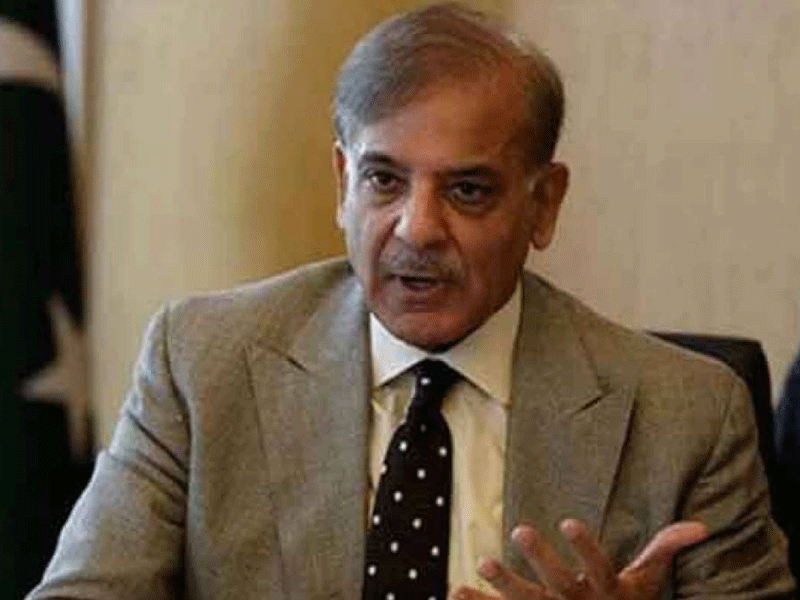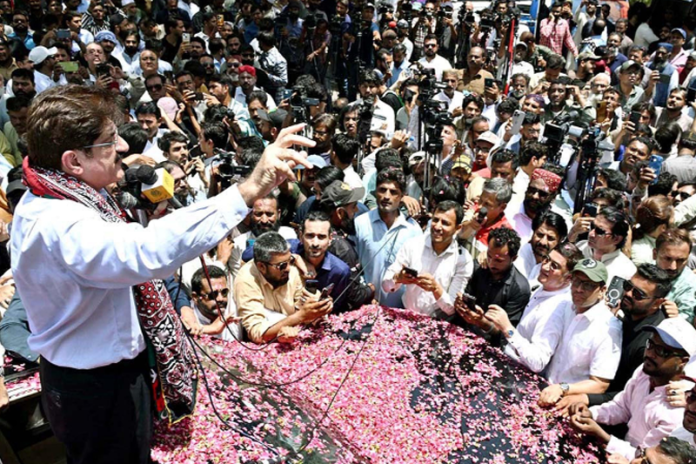Time to provide relief to the common man in budget

- 241
- 0
Relief from foreign debt, increase in exports, reduction in trade deficit, domestic and foreign investment, government and non-government level austerity, conducive environment for peace and security, are essential for the survival, development and economic prosperity of Pakistan.
Currently, the country is facing an economic crisis. The common man has been severely affected by the rampant increase in inflation. The common man is running from pillar to post to make both ends need. Against this backdrop, the all possible steps should be taken to provide relief to the common man in the federal budget, all resources should be used to reduce the financial difficulties of the poor and middle class.
On Tuesday, there was a briefing regarding the preparations for the financial year 2023-2024, in which issues came to the fore and instructions were issued for quick finalization of pension reforms, establishment of pension fund by adopting creative methods, and concrete steps to increase revenues.
While the financial gurus and agri experts hail the decrease in urea prices and they have also expressed happiness over the current account surplus in the last two months.
But the most important upcoming event is the federal budget for the next financial year, which will be presented on June 9 after approval by the Cabinet.
According to newspaper reports with reference to sources, the size of the budget may increase from 5 trillion or 50% to 6.14 trillion rupees. FBR’s tax target is expected to be 2.9 trillion. A 20% increase in salaries is proposed.
The Ministry of Planning has demanded Rs 2.1 trillion for development expenditure. Business Chambers and Business Council have also submitted their recommendations. 10 big business firms have opposed the continuation of super tax.
The need is that the budget should be people-friendly and far-reaching economic reforms should not be neglected in any way. Despite the adverse conditions, the PDM government is considering giving major economic relief to the people in the last budget of the current parliamentary session and efforts are being made to make the impossible possible under the strictest conditions of the IMF.
According to sources, the IMF has demanded not to abolish the super tax, which is 1% on annual income of 15 crores, 2% on 20 crores, 3% on 25 crores, 5% on 30 crores and above. But this tax will be applied at the rate of 10 percent. The fixed rate will remain at 10 percent on automobile, beverages, chemical, fertilizer, steel and cement sectors, while on car manufacturers and banking will remain at 30 percent.
In the context of the capitalist system, according to economists, this distribution of wealth is a formula that the government implemented last year in the form of a mini-budget, while GST including super tax and nerve-wracking increase in energy prices where the common man is facing problems and the economic problems increased, so did the government revenue.
It is considered as a matter of principle that the employer dedicates a part of his profits in the form of increase in salaries and wages of the employees.
On the other hand, Pakistan, which is among the countries with the lowest per capita income, has not seen any increase in salaries for the last five years, while the previous governments in the same country have been giving relief to the people while imposing new taxes. The middle class has shrunk due to the worst inflation in years and the rate of people living below the poverty line has increased from 33 to 40 percent. Allocate in case of increase and oblige the private institutions to increase the wages as well.
According to the data obtained from more than 50 markets of 17 cities of the country, during the last seven days, the prices of 21 items increased, seven decreased while the prices of 23 remained the same. Prices of flour, bread, potatoes, tea, eggs, basmati rice, fruits, pulses and soap increased further while tomato, onion and sugar decreased slightly.
According to economists, under the program given by the IMF, the government is forced to withdraw the subsidy given in the prices of fuel and electricity to cover the financial deficit, so the inflation is seen to increase further in the coming months. On the other hand, in the monthly economic report of the Ministry of Finance, the fear of further increase in inflation has been expressed.
Due to the decrease of 10.8 and 11% in remittances and exports respectively and the situation of imports remaining unchanged, the extraordinary burden on the economy has become a challenge for the government.
The recent inflation is affecting the salaried class the most, while others make up the difference in their income by increasing their services and wages and by increasing the prices of products.
Therefore, it is necessary to increase the salaries of public and private employees reasonably in the upcoming budget so that they can get some relief from the severe inflation.
Meanwhile, one would also agree with Federal Minister Sherry Rehman , who has advised the business community and shopkeepers to shut down their business by 7 p.m., to address the energy shortage in the country. She said that saving on energy costs is necessary as the Govt spends heavily on the import of oil and other energy mean.
Published in The Daily National Courier, May, 29 2023
Like Business on Facebook, follow @DailyNCourier on Twitter to stay informed and join in the conversation.

















































